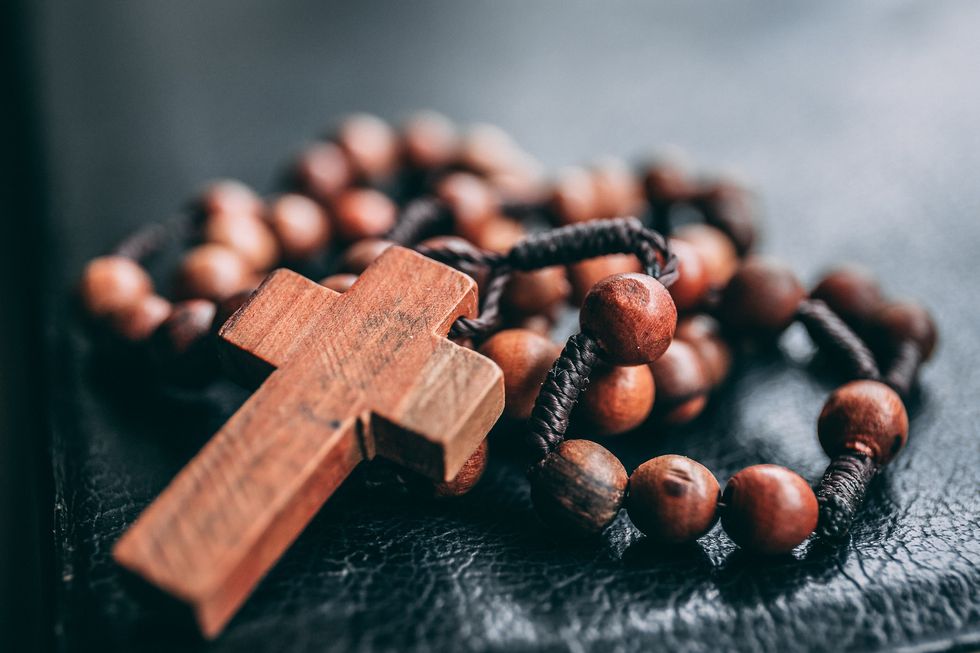There have been a lot of recent political discussions about prayer in public schools in America. As someone who attended private Catholic school for 13 years of my life, I experienced school prayer every day of my primary and high school experience. Every morning and afternoon after the bell, we would pray together, and we would regularly attend masses and prayer services as a school community. Prayer was a big part of my life for many years, and I support prayer in private religious institutions. However, there is no reason why prayer or religion should be a part of public school systems in the United States.
One of the most important aspects of the United States is the freedom of religious expression guaranteed in the First Amendment. The First Amendment also prohibits Congress from establishing a religion, which guarantees what Thomas Jefferson referred to as "the separation of church and state." During the founding years of the United States, many people of different faiths, though they were primarily Christian, fled religious persecution to find a safe place to freely practice their religion here. Freedom of religion was extremely important at that time, and the Free Exercise Clause and the Establishment Clause were one of the five main freedoms outlined in our Constitution when it was first written. For this reason, prayers organized by or sponsored by a public school violate the First Amendment.
Many people argue that banning school prayer is against our freedom of religion because it stops children from exercising their right to pray. However, individual prayer (that takes place in a non-disruptive way) is not and has never been banned in public schools. Children who choose to pray before meals, for example, are allowed to pray individually. It is school-sponsored prayer, in which children are forced to take part in praying at a school event or over a school loudspeaker or school-sponsored religion classes, that is unconstitutional because it forces children to take part in a religion in a coercive, mandatory way and invalidates the different faiths held by other children.
In addition to that argument, those who support prayer in public schools argue that children need to develop their whole person—including their souls—in school and that religious instruction would benefit society by causing children to be more moral. These arguments completely disregard the separation of church and state in America. Parents who choose to raise their children with religion should teach these religious messages to their children at home, and parents who want their child to pray every day should instruct their child on how to pray individually instead of expecting this to be taught and enforced in schools. Sunday school, Hebrew school, or another type of instructional religious program is a great way to teach your children about your faith. Additionally, if you cannot afford private schooling, many archdiocese or parishes offer lower-cost religious schooling. My older sister started her education at a Quaker school. When it came time to send three children to school, my parents chose a less expensive Catholic school. My parents made sure we attended mass on weekends and also taught us about prayer individually at home from a young age, including how to say the rosary and other Catholic prayers. The prevalence of any religion in a child's life should be up to their parents, not public schools, and rules that enforce school prayer alienate non-Christian Americans.
Recently, South Dakota even passed a law stating that the national saying "In God We Trust" must be displayed in a prominent location in all public schools. Though this is not enforcing school prayer, this phrase alienates members of the school community who are not religious or who believe in non-Christian faiths. I was also surprised when I started university in Virginia to find out from my classmates who had attended Virginia public schools that it was common to give optional time where Christian students could leave school to have Bible study. While this is technically not school-sponsored because it is not mandatory to go, there are no alternatives for students of other religions, and this religious instruction cuts into classroom time. While this does not force students to partake in a specific religion, it is still clearly alienating for Jewish, Muslim, Atheist, and other non-Christian students.
As someone who experienced school prayer every day in primary and high school, I understand the benefit of school prayer and why religious individuals would want to pray during school hours. There is simply no reason why school-sponsored prayer or other religious activities that alienate non-Christians should be allowed at public school when there are so many other alternative ways for parents to instruct their children in religion. Personal religious instruction at home and personal prayer during school hours of course should be allowed, but policies that discriminate against non-Christians and bring religion into secular environments should never be allowed.






















